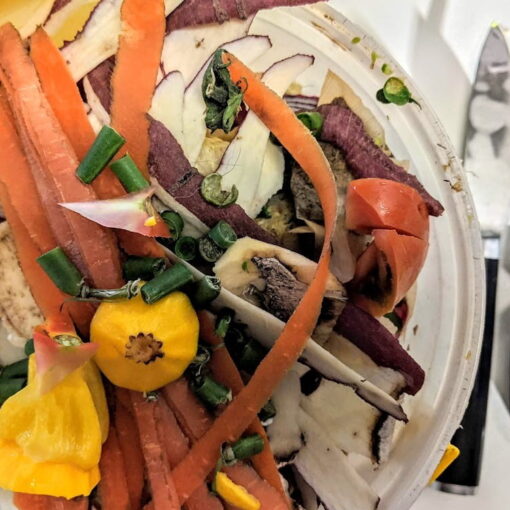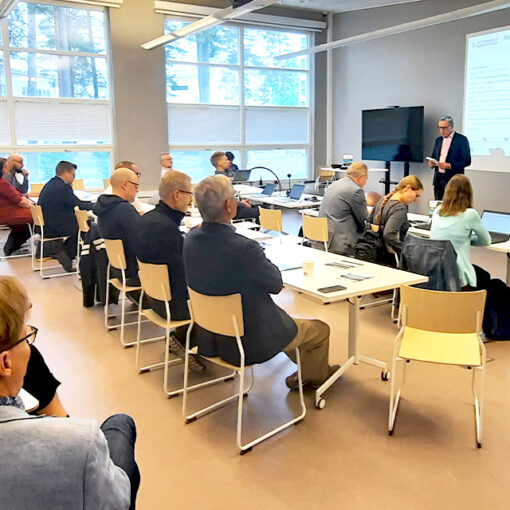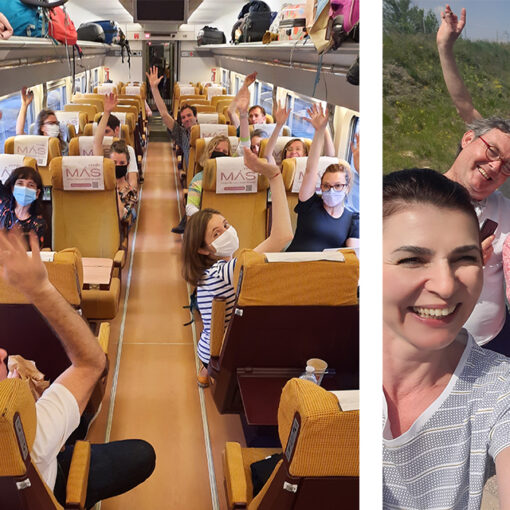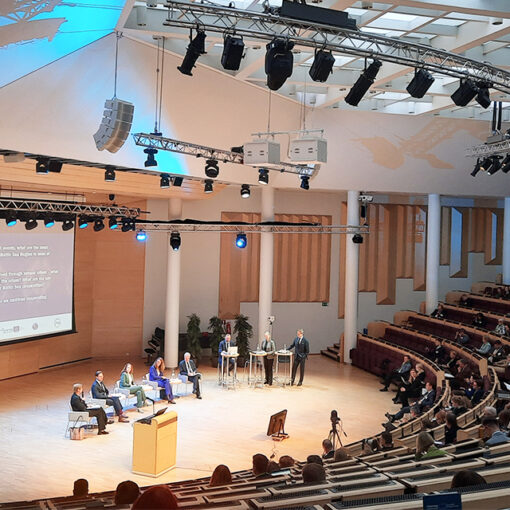The joint virtual and physical mobility study course called Sustainability in Digitalization ‒ Green IT was organized at LAB in autumn 2022 in co-operation with University of Applied Sciences Würzburg-Schweinfurt from Germany (FHWS 2022) and National Technical University Kharkiv Polytechnic Institute from Ukraine (KhPI 2022).
Sustainability in digitalization
Sustainability in Digitalization ‒ Green IT course’s learning target was that a student will learn technical sustainable information technology topics, such as optimizing the energy consumption of hardware, software or algorithms and communication strategies or protocols. Secondly, student will learn management topics, such as resource-saving production, efficient use, reuse, recycling and finally disposal of IT components.
Finally, the meta learning target of the course is that a student will gain experience on international project management while working in small international teams on a project. The content of the course complements information technology students’ study selection. Seven LAB students enrolled to the course, six students from Kharkiv Polytechnic and seven students from Würzburg.
![[Alt text: a huge and high building.]](https://blogit.lab.fi/labfocus/wp-content/uploads/sites/8/2023/02/107_2023_Joint-virtual-and-physical-mobility-etc-1024x662.jpg)
Online studies and mobility week
Weekly lessons, learning platform and co-operation in student teams were organized online. After the online part of the course, students and professors had a one week Erasmus funded study exchange to University of Applied Sciences Würzburg-Schweinfurt in the Faculty of Computer Science and Business Information Systems in Würzburg.
During the mobility week student teams worked on their selected topics, prepared and gave a presentation. Agile Scrum method was tested in practice with team tasks to build a town with Lego bricks. Free time activities introduced the host university campus, degree programs and the beautiful town Würzburg.
Student experience
Student feedback of the course arrangements pointed out that six hours of online lessons a day feels like a heavy task. Mobility week to meet the other students and own team members in real life was considered the best part of the course. As friendships grew, they felt that exchange could have lasted longer. Many non-native English speakers noted that in the beginning they were afraid of their language skills but were relieved to notice that they managed well enough.
Earlier research on reasons why to travel to exchange has brought out findings on what intercultural competencies, knowledge, skills and attitudes they acquired. Students learned to cope and to be happy abroad. They found creative solutions for unexpected problems. Some plans failed and they needed to start again. Some needed to work out misunderstandings. New experiences built student’s self-confidence, openness and caring. (Eaie 2021)
Course’s learning targets were met, the most memorable working in an international team for the first time. Possibly this virtual and physical mobility gave students a sparkle to apply to a longer international study exchange.
Author
Jaana Tanhuanpää works as a senior lecturer at LAB University of Applied Sciences in Business Unit.
References
Eaie. 2021. European centre for expertise, networking and resources in the internationalisation of higher education. Words matter: why we should stop talking about ‘virtual mobility’. Cited 9 Feb 2023. Available at https://www.eaie.org/blog/words-matter-virtual-mobility.html
FHWS. 2022. University of Applied Sciences Würzburg-Schweinfurt. Mobility goes Virtual. Cited 9 Feb 2023. Available at https://fiw.thws.de/en/our-faculty/current-projects/mobility-goes-virtual/green-it/
KhPI. 2022. National Technical University “Kharkiv Polytechnic Institute”. Homepage. Cited 9 Feb 2023. Available at https://www.kpi.kharkov.ua/eng/




